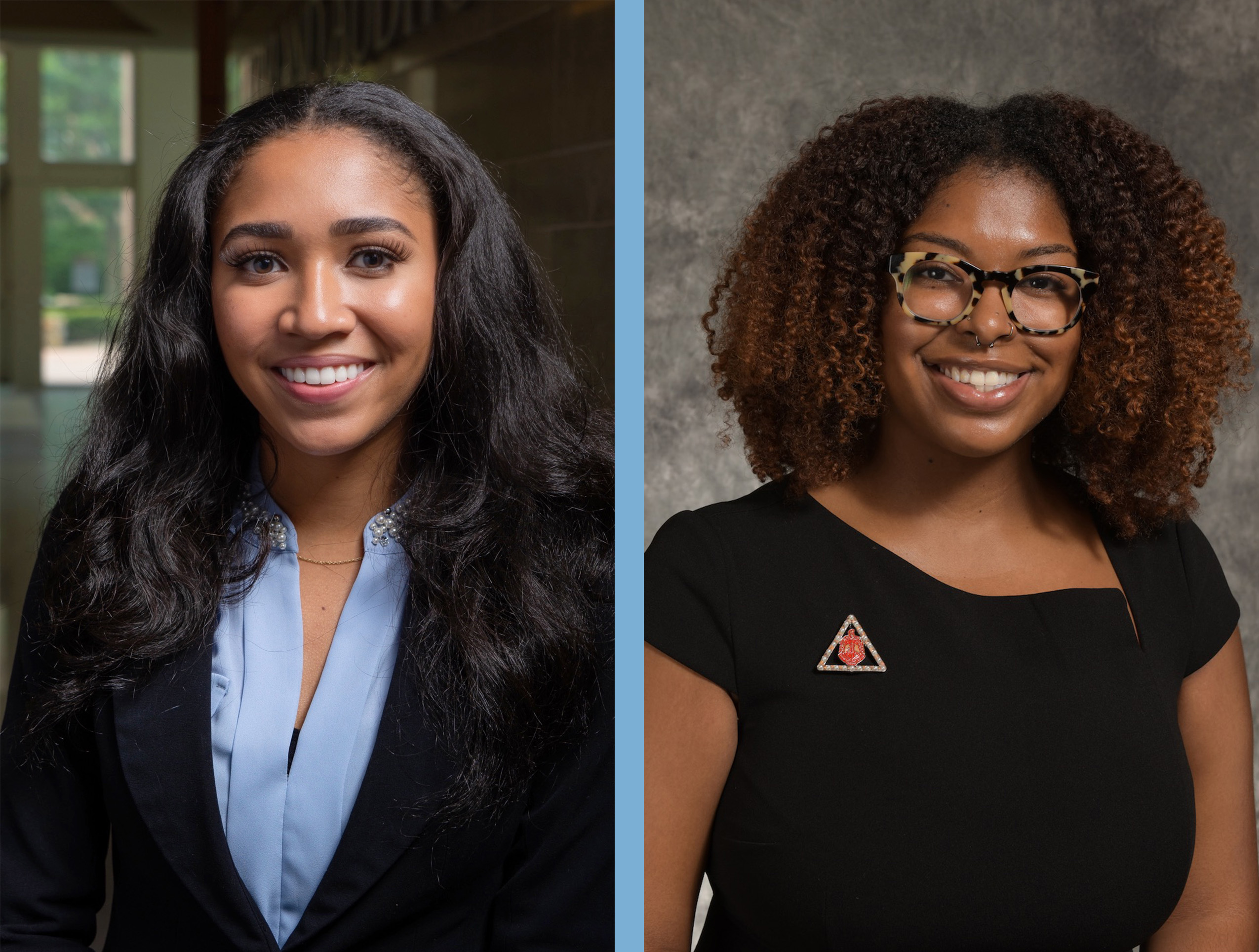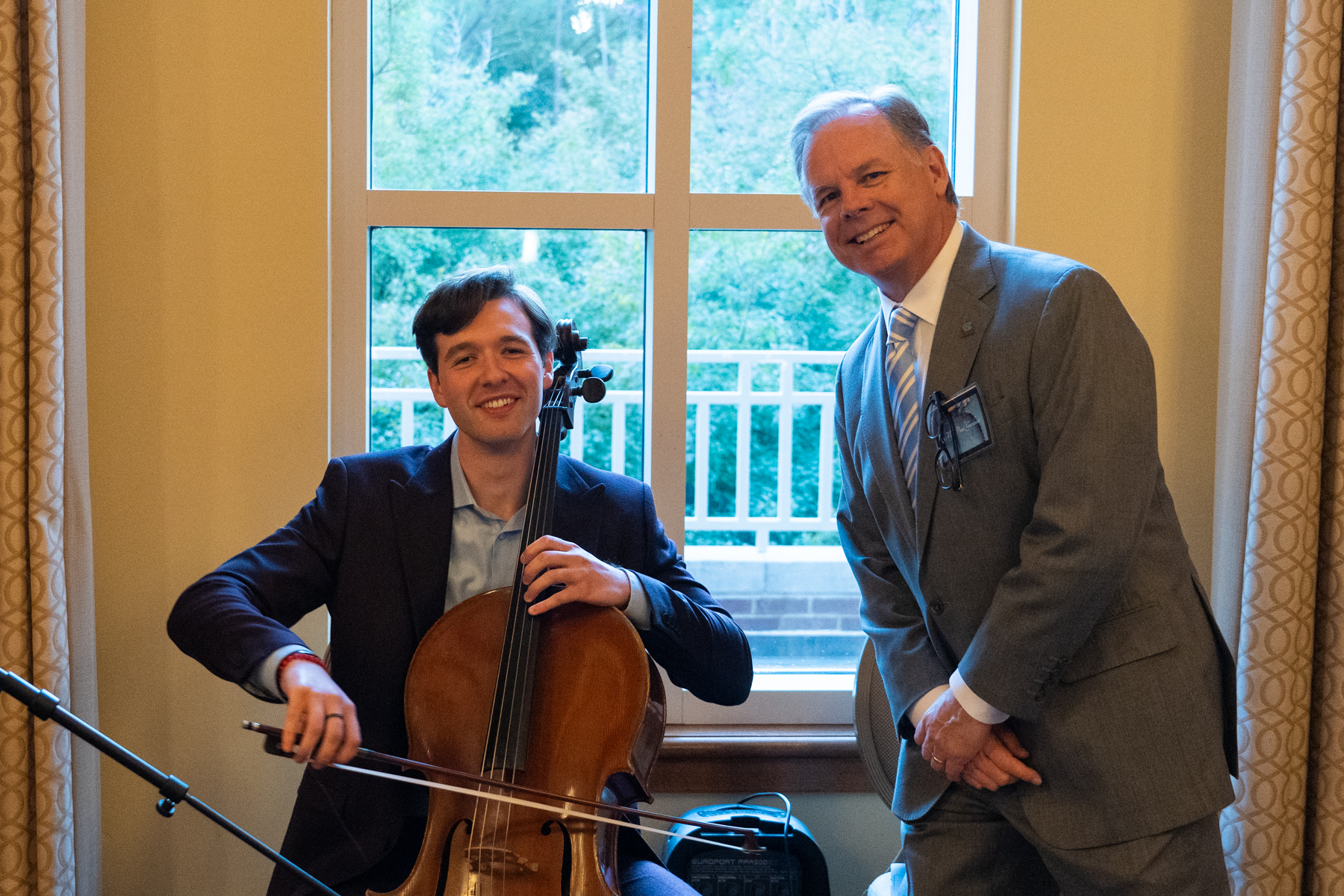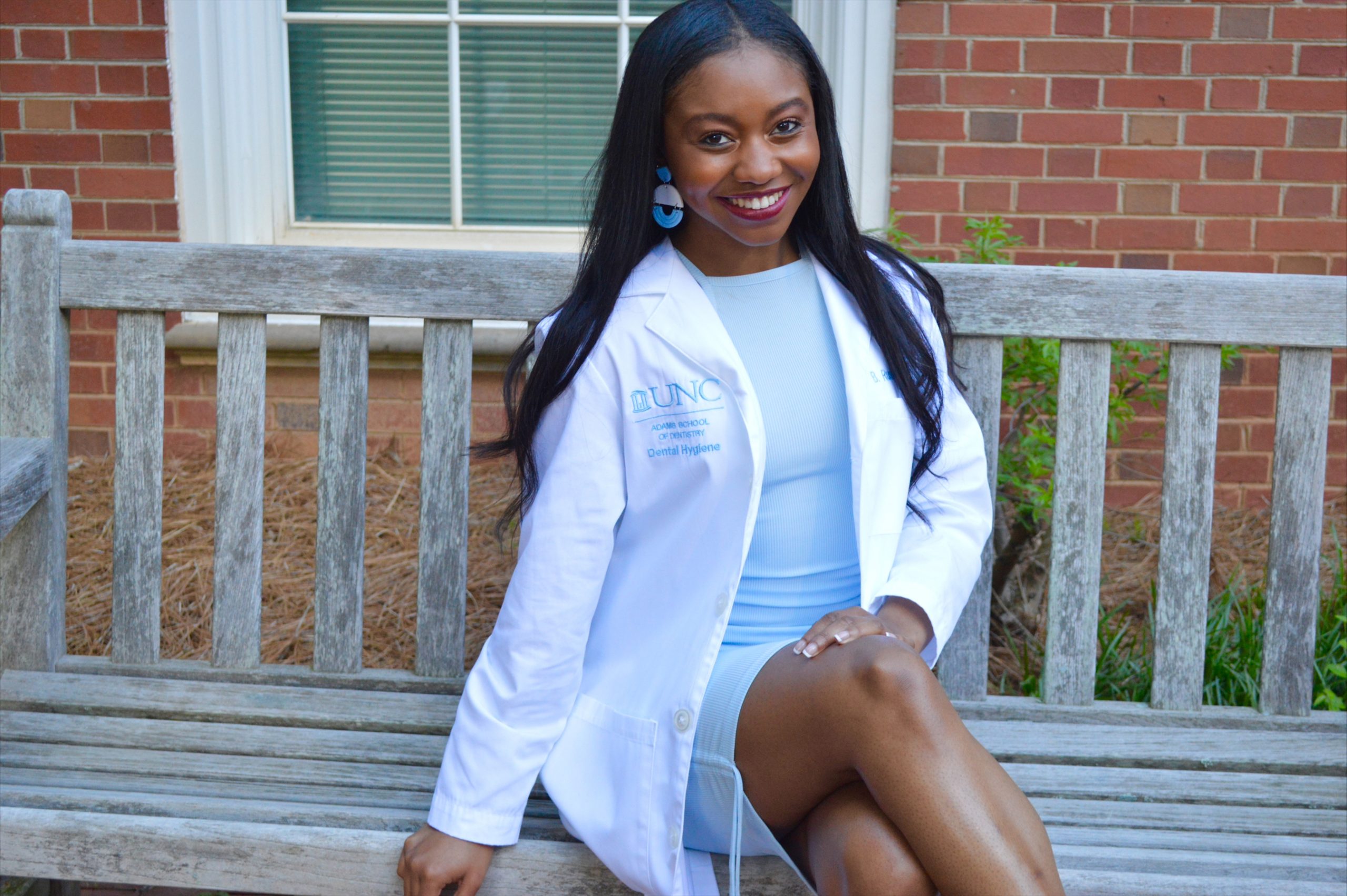A team approach to care: Clinic manager thrives in fast paced environment

Since she was a child, Adams School of Dentistry’s Jessica Hill has been driven to care for others. Whether it was playing dress-up in a nurse’s uniform or joining her high school’s CNA program, she has always felt a calling to protect and serve her country, patients, families and anyone who needs help.
As the clinical and administrative manager for the Craniofacial Center and Henson Special Care and Geriatric Clinic at ASOD, Hill often sees people on bad days, but she’s well versed at making them better, due in part to her exposure to emergency medicine and her time spent as a medic in the U.S. Army.
When she and her husband were discharged from the service, she turned her focus to being a mom, but her medical background served her well when she joined an allergy practice to administer immunotherapy injections and as part of her data manager duties, took on the role of medication and diabetes care manager for the Lee County School System. In addition to her clinical skills, Hill has a degree in health care management.
She is also a natural leader, and the next step in her career brought her to ASOD where she discovered a position that combined her medical and organizational skills – a perfect fit.
“I thought ‘This is perfect.’ I love pediatrics, I love kids, and it’s for an underserved population,” she said of the job posting. “There’s a need for advocacy, and I have a strong voice for others who may not have one. It’s leadership but also clinical. It’s the best of both worlds. I would interact with patients and get to work with ENT, plastics, maxillofacial surgery, speech language pathology, neuropsychology, and dental specialties. I would do complex care coordination, and I can come in and make a positive change. It’s my dream job. I’ve got to do it.”
Managing a busy clinical environment
Since she started, Hill has created a special place for patients and their families, as well as for staff, faculty and doctors.
“The doctors would describe me as a ‘chaos coordinator,’” she said. “They call me ‘boss lady.’ I’m very regimented in my approach. It’s almost like the craniofacial clinic is an orchestrated performance, with so many specialties seeing patients in one visit. I have to coordinate each step, and it’s organized, beautiful, chaos.”
“Her management techniques combine a tough love with a tender heart which tends to motivate to action those in our team,” said ASOD’s Allen Samuelson, DDS. “I give Jessi high praise for her work and creativity. She also has a fun side and tries to keep up the morale of our team members and does this well given all our circumstances.”
Hard work and fun times
Hill said 30-second dance parties often break out spontaneously in the clinic, and she even had one patient propose to her. “He wrote me a love letter,” she laughed. “He brought a ring and proposed to me. Every year I learn something new about our patients, they’re always doing the cutest things.”
The goal for Hill and others in the craniofacial clinic is to help patients and their families with evaluating the whole child, examining each case and coming up with a comprehensive plan to address their needs. Hill said the patients are what motivate her to work at a job with so many moving pieces.
“I enjoy having a job that is multidimensional,” she said. “Relationships with patients are so special. I see kids that came in as infants, and then I see them go to kindergarten. It’s so rewarding, even seeing them once or twice a year. It’s great to see them develop and thrive.”
Garrett Bailey, team coordinator, said Hill sets a great example for everyone she works with.
“She communicates well with our families. Sometimes it’s hard to find the words, and she does a good job. I see how she does it, then tweak it, and make it my own,” he said. “She’s good at following up on important things, and she remembers everything. She reminds them, face to face.”
Creating a culture
Hill’s strengths in organization and leadership are evident to her team and coworkers, but she begins from a place of order, as well, practicing what she preaches and embodying the type of culture she believes will help everyone thrive.
“I want to foster a sense of community. I’ve tried hard to shift the culture within the teams I manage, and that comes by setting expectations, by modeling those expectations, and genuinely caring for the people that are working for and with me.”
Hill’s mark can be seen in the craniofacial clinic, as well as across the dental school. Each year, she and Jeneen Williamson from OMFS put together a waffle bar with a variety of flavors and toppings, and they spread holiday cheer during December with a mobile hot chocolate cart to say “thank you” to others in the school.
Hill has also created a strategic plan for the craniofacial clinic to address areas she feels need attention and to support outreach for patients, families and students. She hopes to create a support network for patients and families with cleft palates and craniofacial conditions, and she has events planned in advance to help foster a sense of community among that same population, including Carolina Cheer Day, an event helping spread awareness about craniofacial issues. The clinic also works closely with Magical Moments Foundation, and ASOD’s Catherine Bingham, DDS ‘25, has helped set up events for a patient to receive a special day. Patient parades at Halloween also help keep spirits high.
Sharing her knowledge
Scholars and dental students reap the benefits of Hill’s planning and foresight. Health care management interns from within the UNC System spend time in the craniofacial clinic during the summer months, learning about clinic operations, customer service, quality improvement and patient dignity. The clinic also hosts a rotational site visit for dental students to help expose them to new populations within the oral health sphere.
“Students may not have interactions with other kids who are affected by clefting or craniofacial conditions. It’s important that they understand the importance of cleft and craniofacial care,” she said.
Building and engaging an effective team is something that Hill focuses on, encouraging team-building and constructive criticism at the clinic level, so everyone can perform at peak condition for their patients. Hill uses notes as a tool to help foster staff engagement, offering feedback cards at staff meetings and asking for suggestions and comments they can address at future meetings. Hill feels that community and relationship building – among staff, patients and families – serves to create a more successful health care setting.
“My philosophy regarding health care administrators — build relationships and make informed decisions. What administrators need to understand is that every decision you make will affect someone’s experience, another’s workflow, and potentially your patient’s access to care. Your job as an administrator will be to make changes, watch the bottom line, follow quality improvement measures and manage people. But if you want to be a successful and accepted administrator, you first need to identify and consider whom and how the changes you make will impact someone. At some point, you will find yourself responsible for advocating for patients, caregivers, staff, and doctors. If you are going to be the future of healthcare, you need to understand health care from the bottom up.”
When she’s not in the clinic, Hill can be found wearing another of her many hats – as a mom and wife. She’s been teaching her 16-year-old twins how to drive and ferrying her 14-year-old daughter to various activities. But Hill loves concerts, the beach and getting outside to paddleboard – some of her favorite activities. Hill is an avid football fan and spent many years coaching her local parks and recreation football team. She’s also been talking about college with her twins, thinking about visiting schools out of state or whether they’ll stay closer to home and embrace a Carolina education.







